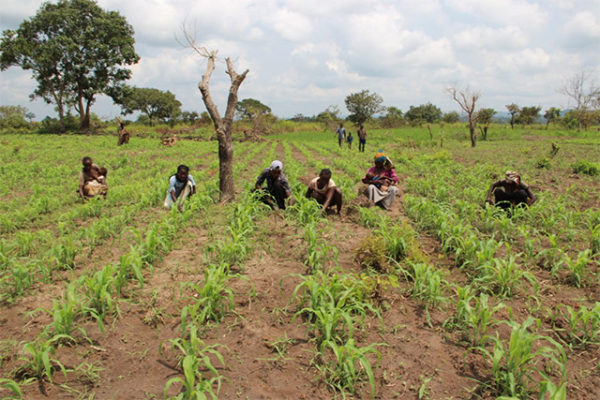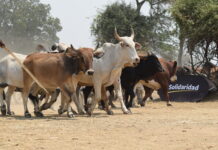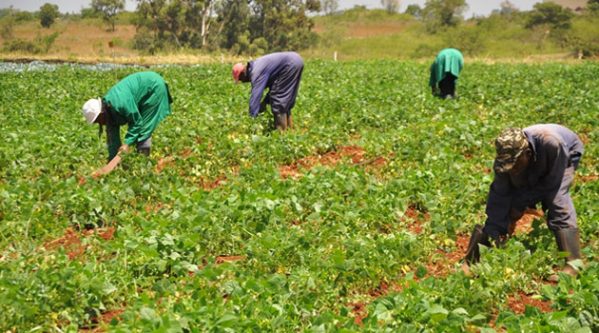The Zimbabwe government has called on its citizens to participate in preserving and properly managing their environment and combat drought.
The call was made by the Environment, Climate and Tourism Deputy Minister Barbara Rwodzi during the World Desertification and Drought Day commemorations.
The commemorations were held in Makaha, Mudzi District, in Mashonaland East Province.
The United Nations General Assembly declared June 17 of each year as the World Day to Combat Desertification and Drought in order to promote public awareness on desertification, land degradation and drought (DLDD) in line with the United Nations Convention to Combat Desertification (UNCCD), to which Zimbabwe is a party.
The theme for this year is, “Rising up from drought together”.
Rwodzi called for the prioritisation of sustainable land management programmes to combat droughts, and other challenges.
“In 2015, about 60% of livestock perished in some areas of Zimbabwe due to drought,” she said.
“These statistics, ladies and gentlemen, are alarming and call for the prioritisation of sustainable land management projects and programmes that offer long term solutions to drought management as well as climate change adaptation measures to support community livelihoods.”
Rwodzi said issues of land degradation, drought and their impacts know no boundaries, and communities should actively take part in finding solutions to environmental degradation.
She said land degradation, drought and their impacts were challenges of a global dimension that not only contribute to, but also aggravate economic, social and environmental problems such as poverty, poor health, food scarcity, biodiversity loss, water scarcity, reduced resilience to climate change and other shocks.
She added that the 2022 World Desertification and Drought Day was held in the Makaha area which, besides being in the drought-prone agro-ecological Region 5, has artisanal and small-scale mining as a major economic activity.
“It is a known fact that human activities combined with natural disasters, such as drought, contribute to land degradation globally and particularly in Zimbabwe,” she said.
She said the Government appreciated the role played by the United Nations Development Programme (UNDP) in support of the various environment related programmes in general and the project “Preparatory Support to the Sustainability of the Extractive Sector in Zimbabwe”, which is being implemented in Ward 14 of Mudzi.
The project supports reduced mercury use in mining, as well as the provision of alternative livelihoods to the community.
“This was a timely intervention as the Makaha area faced several threats from small-scale mining, seasonal droughts and prolonged mid-season dry spells, compelling the local community to rampantly exploit gold for its survival,” Rwodzi said.
“I am reliably informed that as a result of extensive mining, this area suffers environmental degradation and health threats due to the widespread use of mercury and cyanide for gold recovery. This needs to be attended to and reversed as it has long term negative effects to the livelihoods of the residents of this area.
“My Ministry is also fully aware that small-scale mining continues to significantly contribute towards Zimbabwe’s economic growth providing a direct livelihood to an estimated 500 000 people. I, therefore, call upon the sector to carry out its mining activities in a sustainable manner in order to protect the environment.
“I urge all miners to rehabilitate decommissioned mining sites and restore the land for other productive uses.”
The UNDP funded nutrition gardens and piped water projects in at least six villages and one secondary school in Makaha, have brought multiple benefits to the community, including improved agricultural productivity, enhanced food security, enhancing rural incomes, clean water, clean energy and land restoration.
“It is, however, not too late to initiate plans to rehabilitate some of the degraded areas in order to combat desertification with technical assistance from the Ministry of Mines and Mining Development and EMA so that we achieve our National Development Strategy 1 targets,” she said.
“I applaud some of our local communities here who have already started working on restoration of degraded ecosystems and showed us the way.
“Timely intervention by the Ministry of Environment, Climate, Tourism and Hospitality Industry to select Makaha as a recipient of the UNDP funded project entitled ‘Preparatory support to the sustainability of the extractive sector in Zimbabwe’ is commendable.”
Minister Munzverengwi said the project had assisted in raising awareness on the impacts of unsustainable mining activities and it also offered an alternative livelihood to wean off some people from entirely relying on illegal mining, thus reducing land degradation in Ward 14 of Mudzi.
A piped water system in Makaha has seen the local community fighting drought.









[…] Source: https://farmersreviewafrica.com/zim-govt-urges-citizens-to-combat-drought-preserve-environment/ […]
Comments are closed.